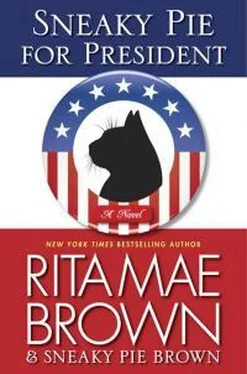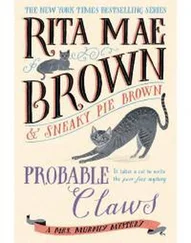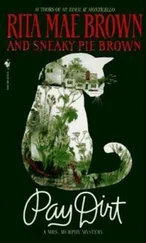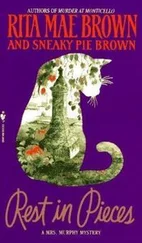“People, you mean, nuclear stuff—that kind of madness?” asked the little mouse. “We hear about all that, even up here.” The little mouse grew sober.
“And it will creep closer and closer if we don’t speak up, organize,” said Sneaky. “So I am here to ask for your blessing. What could mean more than to have Mr. Jefferson’s mice endorsing my campaign? And don’t think people won’t notice that mice are supporting a cat.”
Flattered, the mice chattered in a group. Then the medium-sized mouse stepped forward to play devil’s advocate. “We’re safe here. Who would disturb Monticello? Who would even put out a cigarette butt on Mr. Jefferson’s walkway, much less bomb the place? We have no need of politics.”
“Oh, but you do,” Sneaky warned. “Monticello is a symbol to the world of freedom. There are people out there who fear freedom for other people, and of course we know they care nothing for animals. Those enemies are outside our country’s borders, and within, as well. People who want to control others, who want to put the bit in a human’s mouth like they do a horse. Support from Monticello’s mice would be wonderful, and think about this if you don’t think much of me: How long before the exterminator fogs out this dome? There’s more and more human regulation. All that has to happen is someone sees evidence that you live here and it’s curtains!”
“Oh, no!” The little mouse wrung his front paws.
“They’re losing their reason,” Sneaky said, off and running in her speechifying mode.
“They think they have a greater right to this house than you do,” Pewter added, fueling the fire.
“But we were born in this house!” the big mouse squeaked. “We have document fragments that our great- and great-great-great-grandparents saved from the wastebaskets. We have fragments of Mr. Jefferson’s notes. Have they no shame? How dare they!”
“They can and they will if we don’t stand up for our rights. We are all Americans.” Sneaky was getting the hang of campaigning.
The big mouse stepped forward. “When the time is right, we will publicly support you.”
After warm goodbyes, the three visitors retraced their steps and met up with Tucker, promising to tell her everything later. Silently dashing under the sleeping wren’s tree, they reached the truck just as people were gathered on the front steps of the director’s house. Their historical meeting was over, but they couldn’t stop talking. Humans everywhere seemed to love the sound of their own voices.
Sneaky, the leanest and most athletic of the animals, hunkered down, then sprang up, sailing through the window. She pushed on the door latch so Tally, Tucker, and Pewter could scramble in. It was hardest for Tucker, but she made it. They spread out on the seat, pretending to be asleep.
Their human reached the door, noticed it was ajar, and opened it to view the three animals sleeping.
“Aren’t you all good kids?” She slid in, put the key in the ignition, fired up the motor.
As the truck pulled out of the drive, the two dressage horses owned by Leslie and her daughter shook their heads. They had just observed the cats and dogs making it back into the car in the nick of time.
The big bay gelding laconically said, “Just when you think you’ve seen everything. I wonder what Mr. Jefferson would have said.…”
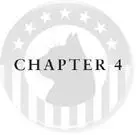
Cowbirds and the Trickle-Down Theory
“Never.” Great Bess clamped her mouth shut, although sweet grass stuck out of it.
The lower pastures by the narrow river branch grew the best hay.
“What about you?” Sneaky Pie asked the second heifer: an old Angus.
“I’m with Great Bess.” The black heifer, Addie, agreed with her Baldy friend, who was half Angus, half Herford.
Tally, a sometimes irritant to the two girls, blared, “It’s because Sneaky Pie wants a mutt for a running mate, isn’t it? I mean, she should choose me. Everyone loves a Jack Russell.”
Great Bess lowered her big head. “I don’t. You’re a pain in the ass.”
“Me?” The dog’s warm brown eyes opened wide.
“You, you little hairy rat dog. I am sick of you chasing Addie and me.”
Addie nodded. “No matter how often I kick, you slip by me and under me. And you have the nastiest bark in the world.”
Sneaky, hoping to divert a bovine bitchfest, stepped closer to Addie. “I could name a Baldy or an Angus to my cabinet.”
“Politics stinks.” Great Bess spat out her grass. “What you want to mess with that stuff for?”
“I can make things better,” the tiger cat stoutly replied.
“Bull.” Addie snorted. They both laughed, as the bull had been dead for years.
“Tell me why you won’t help me,” said Sneaky.
“It’s because you want a mutt for a running mate,” Tally repeated.
“Shut up, Tally. They didn’t know anything about a running mate.”
Addie glowered at the rough-coated pack of dynamite. “Well, we know you sure shouldn’t pick Tally. You nip at us, you run your mouth all the time, and your tone is so piercing. Awful. And worse than all that, you got no more sense than a yellow stick.”
Tally wondered: Did a yellow stick have sense? This kept her quiet for a moment or two.
“And you run in circles,” Great Bess added to her complaints. “Makes me dizzy. Jack Russells are living proof that humans are mental, seriously mental. They could have just stuck with cocker spaniels, you know.” She winked her big eye at Addie.
Both big girls laughed uproariously, hay bits, grass blades falling out.
Tally dragged out the old complaint. “Cocker spaniels were ruined by breeders in the nineteen thirties.”
“You were ruined from the get-go,” said Addie. The little heifer blew stuff out her nostrils right at the dog, who dodged it.
Sneaky Pie looked at Tally, then at the bovine girls. “All I want is to know why you won’t support me. The cattle industry is one of the biggest moneymakers in agriculture. You could say that cattle made this nation, and if anyone argues that, you can sure say cattle made the West.”
“True.” Addie nodded.
Sneaky Pie had done her homework. “Last year cattle brought in about seventy-four billion dollars, and that doesn’t count ancillary business—you know, the feed stores, the feed lots, the vaccines and vets. There’s a lot of money made by you all and a lot of money around you. What about the barns built for you all, and special run-in sheds? And cattle are predicted to make even more money this year. Big, big bucks.”
“So they can kill us and eat us.” Great Bess forcefully hit the nail on the head. “If you’re president, you can’t stop that. Each year between thirty-two and forty million steers and heifers are slaughtered. They eat meat and”—she reached out to nip at Tally—“so do you.”
“Well, I am an obligate carnivore,” Sneaky honestly replied. “If I don’t eat meat, I die.”
“Well, you eat more fish and chicken than cow,” Addie said. “But if you become president, you can’t shut down a huge industry.”
“No. That’s true, but I can make it more humane.”
“Get those humans to eat chicken, or just carrots.” Addie kept her eye on Tally, but the carrot remark made Great Bess jump in.
“She’s right. Humans aren’t obligate carnivores. They can exist on vegetables and wheat, stuff like that.” Great Bess flicked her ear.
“That’s true, too,” said Sneaky, “but even if I could convince humans to change their habits, it would take years. You can’t just pull the plug on something as big as the cattle market. At least if I can make this feed-lot process and the trip to the killer more humane, that’s a step in the right direction.”
Читать дальше
